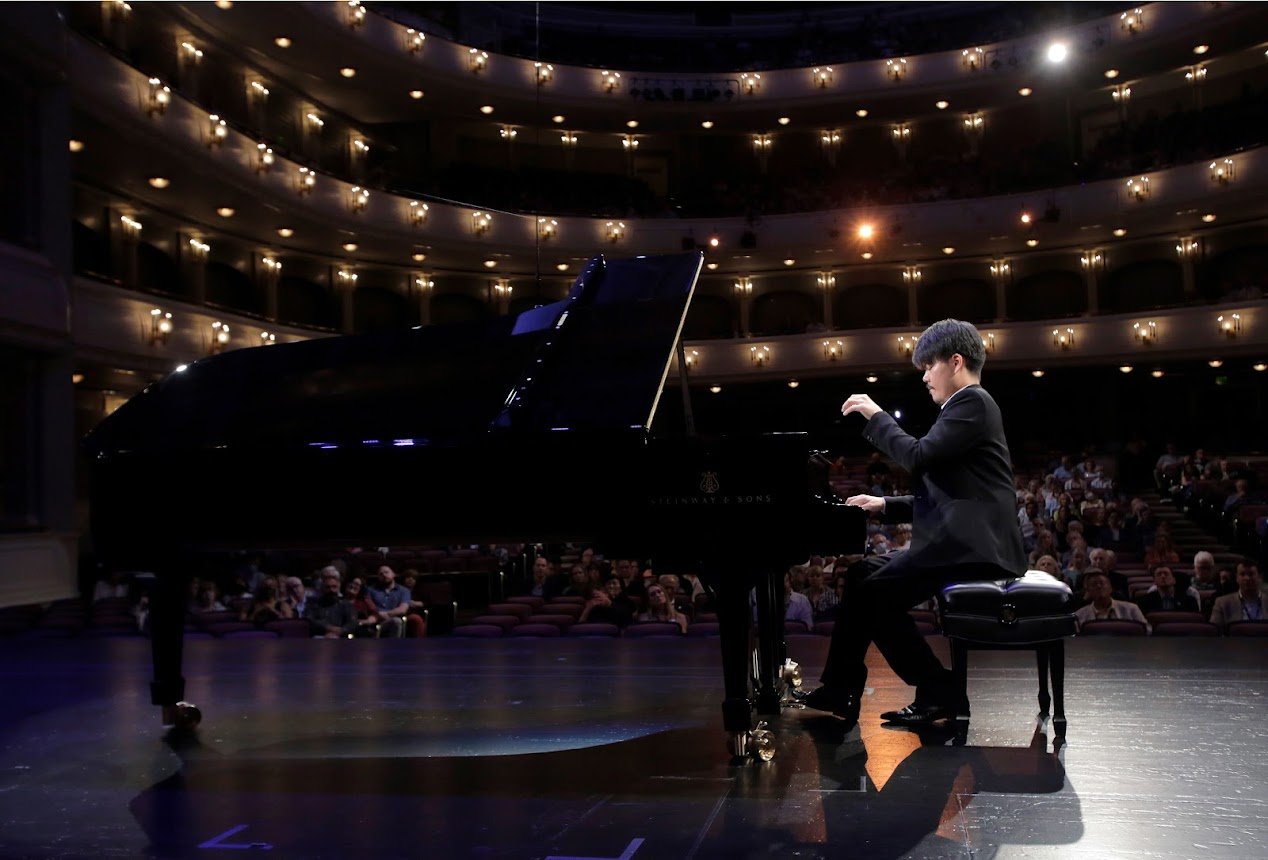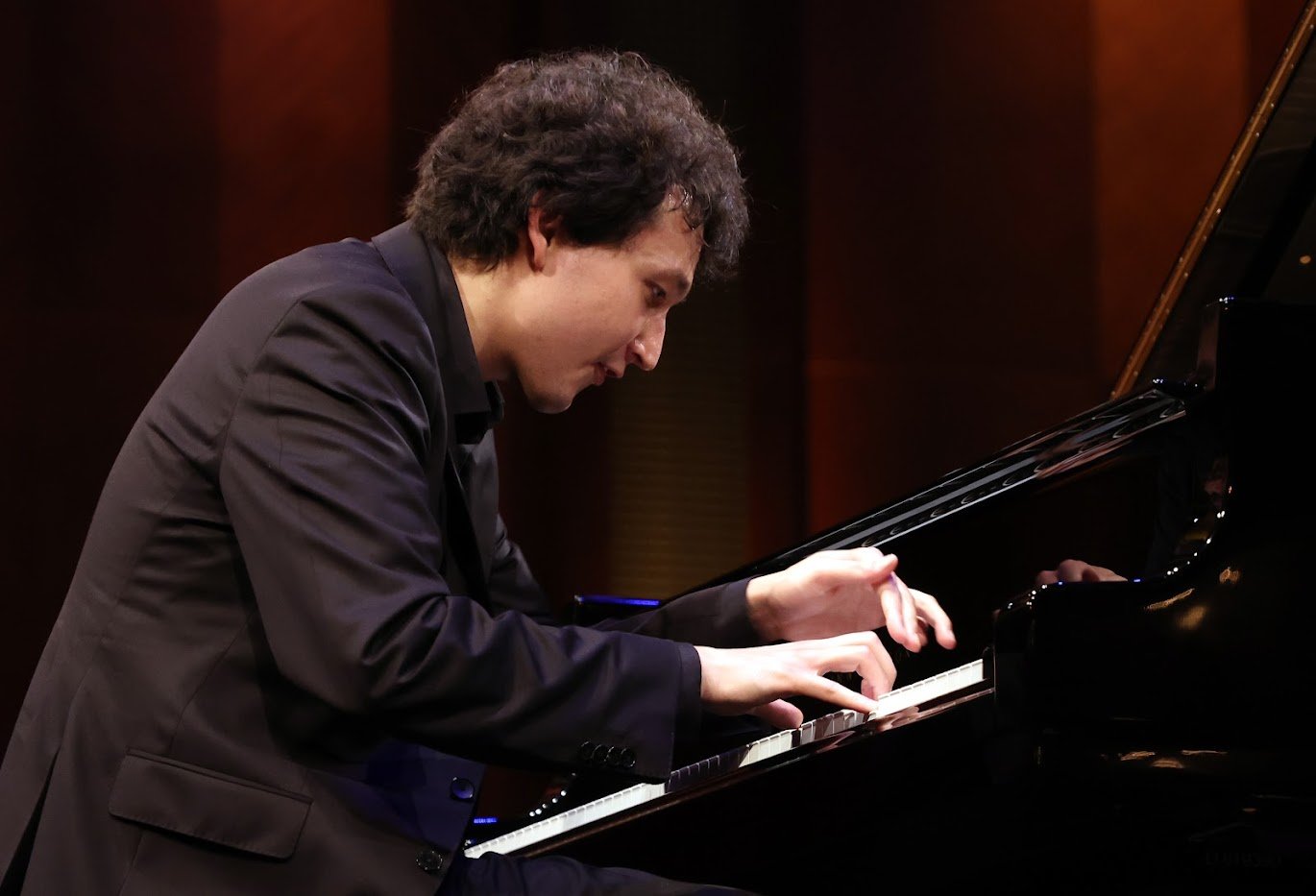Cliburn Competition: Semifinal Concert 6 (Recital), June 11, 2022
—Wayne Lee Gay
Korean pianist Honggi Kim, 30, managed a programing tour-de-force with an all-twentieth-century, nearly all-American program for his semifinal round recital Saturday afternoon. Works of Rachmaninoff (who actually became an American citizen shortly before his death) and native-born Americans John Adams and Samuel Barber allowed Kim to take on three very different styles. The result was often technically impressive and generally artistically sound.
Kim took on high romanticism in Rachmaninoff's Ten Preludes from Opus 23. Technical demands here range from substantial to formidable, with opportunities for Kim to show off an appealing singing tone in the lied-like No. 4 in D; a smart martial assertiveness in the famous No. 5 in G minor; and a floating lyricism in No. 6 in E-flat. Only in No. 9 in E-flat minor did momentum threaten to drown in the thick texture.
Adams' "China Gates" of 1977, a quintessential item in the canon of late twentieth-century minimalism, offers the technical challenge of quiet but constantly repeated figurations. Kim successfully managed that technical demand—quite different from standard romantic virtuosity (but equally challenging) while evoking the smooth calm the work demands. Barber's Piano Sonata of 1949 epitomizes the energy, spirit, and emotional turmoil of post-World War II urban America: romantic tunes emerge from dissonant, industrial-strength textures, capped by a complex fugue. Korean Kim admirably communicated the distinctly American aura of the work, simply by playing the notes attentively and with devotion.
In contrast to Kim's tightly organized repertoire, French-Japanese competitor Marcel Tadokoro, 28, took a less obvious, almost hodge-podge approach to his recital program. He continued his advocacy of the French late baroque (which he has included in his two previous recitals) with Jean-Philippe Rameau's "La Rappel des Ouiseaux" ("The Calling Back of the Birds"), performed with a heavy touch contradicting the title, and at odds with the textures of eighteenth-century keyboard music. However, he demonstrated an impressively light touch in the Three Etudes of Scriabin's Opus 65.
The real odd touch in the program was in the presentation of two sets of variations by romantic composers: Rachmaninoff's Corelli Variations of 1931 and Brahms' Variations on a Theme by Paganini. Each presents a catalog of pianistic challenges while exploring compositional technique in variation form. In both, Tadokoro demonstrated artistic momentum and mastery, though he might well have replaced one of these works with a major extended structure. Between the two sets of variations, he again turned to France for Debussy's Nocturne for piano from 1892, a seldom-performed but atmospheric retreat from impressionism by the composer in his early years.

